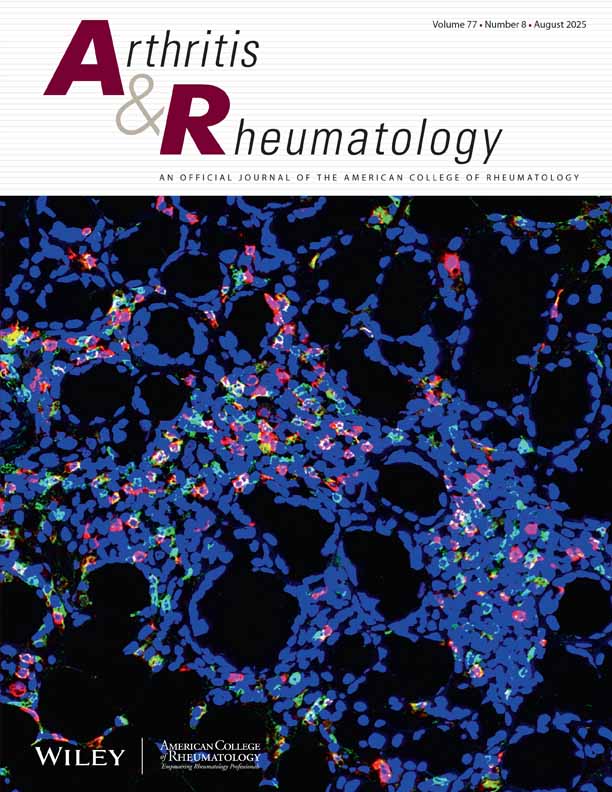Identification and characterization of SmD183–119-reactive T cells that provide T cell help for pathogenic anti–double-stranded DNA antibodies
Abstract
Objective
The C-terminal peptide of amino acids 83–119 of the SmD1 protein is a target of the autoimmune response in human and murine lupus. This study was undertaken to test the hypothesis that SmD183–119-reactive T cells play a crucial role in the generation of pathogenic anti–double-stranded DNA (anti-dsDNA) antibodies.
Methods
Splenic or lymph node T cells derived from unmanipulated as well as SmD183–119-immunized NZB/NZW mice were analyzed in vitro by enzyme-linked immunospot (ELISpot) assay to determine T cell help for anti-dsDNA generation induced by the SmD183–119 peptide. Cytokines expressed by these T cells were measured by ELISpot assay, enzyme-linked immunosorbent assay, and flow cytometry. SmD183–119- and ovalbumin-specific T cell lines were generated and characterized.
Results
The SmD183–119 peptide, but not the control peptides, significantly increased the in vitro generation of anti-dsDNA antibodies in cultures from unmanipulated NZB/NZW mice. Interferon-γ (IFNγ), interleukin-2 (IL-2), IL-4, transforming growth factor β, and IL-10 production increased in response to the peptide in young mice; only IFNγ and IL-2 were increased in older, diseased mice. Activation of SmD183–119-reactive T cells by immunization of NZB/NZW mice resulted in elevated anti-dsDNA synthesis and, later, increased antibodies to SmD183–119. Most cells in SmD183–119-specific CD4+ T cell lines helping both antibodies had increased intracellular expression of IFNγ, and most expressed both IFNγ and IL-4.
Conclusion
The SmD183–119 peptide plays an important role in generating T cell help for autoantibodies, including anti-dsDNA, and activates different subsets of T cells as defined by distinct cytokine expression. This peptide is an interesting target structure for the modulation of autoreactive T cells, and its characterization may contribute to our understanding of the role of autoantigen-reactive T cells in the pathogenesis of SLE.




